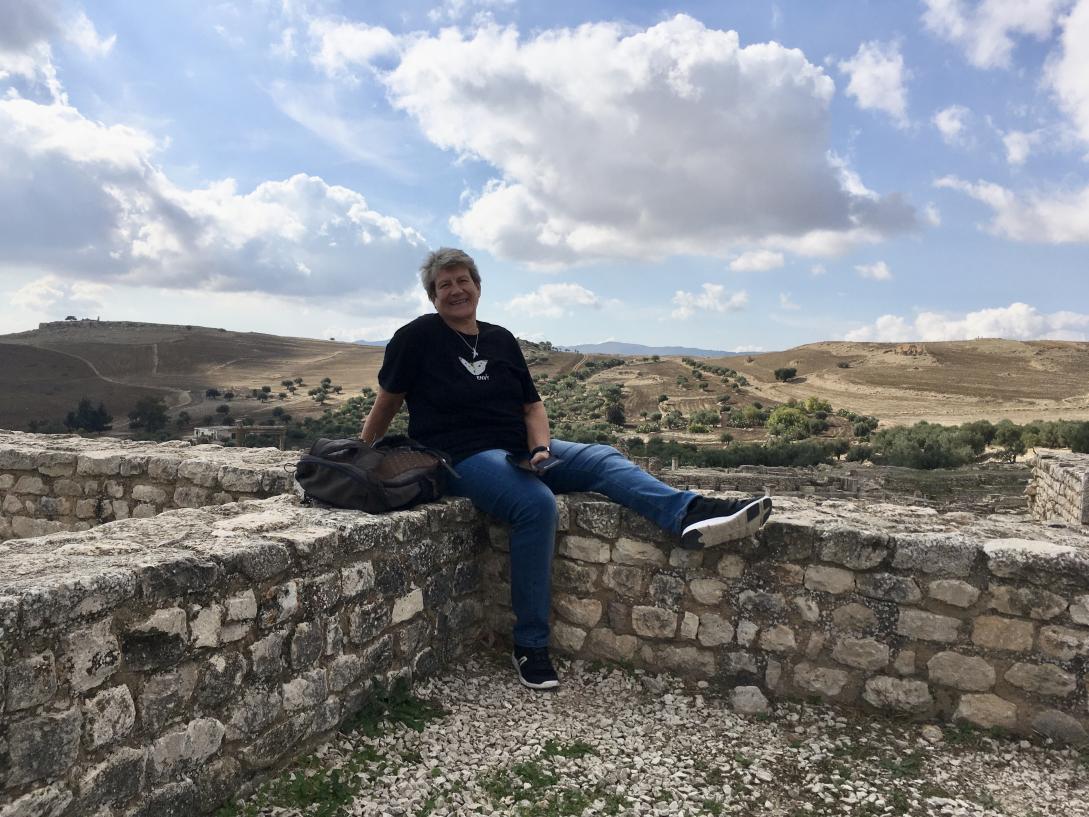Mission Member Profile: Gender Adviser, Tanja van de Linde

Tanja van de Linde is a Dutch citizen and works as Gender Adviser. She joined the Mission in August 2022. Previously she worked in the UN Peacekeeping missions in Congo and EUCAP Sahel Niger and before that with the UN and non-governmental organizations in Kenya, South Sudan, Ethiopia, Laos and Mali. She has a Master’s degree in International Law from Leiden University.
1.What is your main goal towards your work in the Mission?
My main objective is to make sure that everybody fully understands the importance of gender mainstreaming in their work. This is why we have a gender focal point network with two members each from each operational unit. Inclusivity and diversity in the security sector has many benefits.
I am aware that Mission Members and counterparts have a lot on their plates, and it may feel challenging to consider a gender perspective in their work. However, I think it is necessary to continuously encourage everybody to look at their projects and activities with a gender lens and to carry out gender analysis and gender action plans within each unit.
2. What do you think needs to be done to ensure that Libyan woman are better integrated into the security sector?
I think that Libyan women have proven, time after time, their incredible resilience and courage, their capacity to overcome challenging circumstances, including online harassment. Libyan women are very strong, and they want peace and security, but they need to be given opportunities within the security sector as well as being part of reconciliation and peacebuilding. As the Gender Adviser, I try my best to make sure that EUBAM Libya promotes the participation of women in the Women Peace and Security (WPS) agenda as well as ensuring they are playing their rightful role in the security sector.
The integration of the gender perspective and the inclusion of women in the public sector is at the moment very challenging in Libya and there is a lot of resistance even against the draft law on violence against women.
3. In your opinion, is there any method of resolution?
What can be done to improve this situation in Libya? There is no National Plan of Action on 1325 but to reach lasting and durable peace, women need to have a seat at the table.
I am also convinced that we need to engage much more with civil society when it comes to border management. I was pleased to share my experience on this important issue at the Regional Conference on cross border cooperation between Libya and the Sahel, held in Tunis in November 2022. By being inclusive and using participatory approaches there is now a much better and trustful relationship between the police (mobile border control unit) and the border communities in Niger. It would be interesting to explore if something similar can happen in Libya.
4. What about women participation in CSDP missions?
The EU is committed to enhancing women’s participation in civilian CSDP missions. Currently in EUBAM Libya we are at 36 % female staff, which is better than the average for CSPD missions of 26 %.
5. What do you enjoy most about your job?
I always enjoy meeting with counterparts and especially working with women groups and civil society organizations. Libya is a new country for me so it is also interesting to learn more about the culture and challenges in the security environment.
6. What do you like to do in your leisure time?
I like to do sports and luckily there are a lot of possibilities in Palm City: squash, swimming, fitness, etc.
7. How would you describe your Libyan colleagues?
I find our Libyan colleagues very competent and professional and we could never be effective without them.
8. Which topics have your workshops and what is your role in it?
Gender and Human Rights, Gender based violence, Women Peace and Security. Well, I have only been involved in training workshops on document fraud with the Libyan border guards and induction training for new staff but more training on issues like counter terrorism, migration human trafficking, and integrated border management are being planned. The participants are staff of the Libyan border services or our own staff members such as our gender focal point network.
9. What is your dream holiday destination?
I would like to go to Australia.
10. What is one of your favorite books or movies?
“What is the What?” by Dave Eggers and as a movie I would say “Forest Gump”.
11. From your previous experience, what advice would you give to your colleagues and friends about mission life?
CSPD Missions are very different from working in development cooperation and it does mean living in a high risk and non-family duty station which means that you rely much more on your colleagues also for social interaction. Our local staff are really key in helping you understand the local context and culture.





